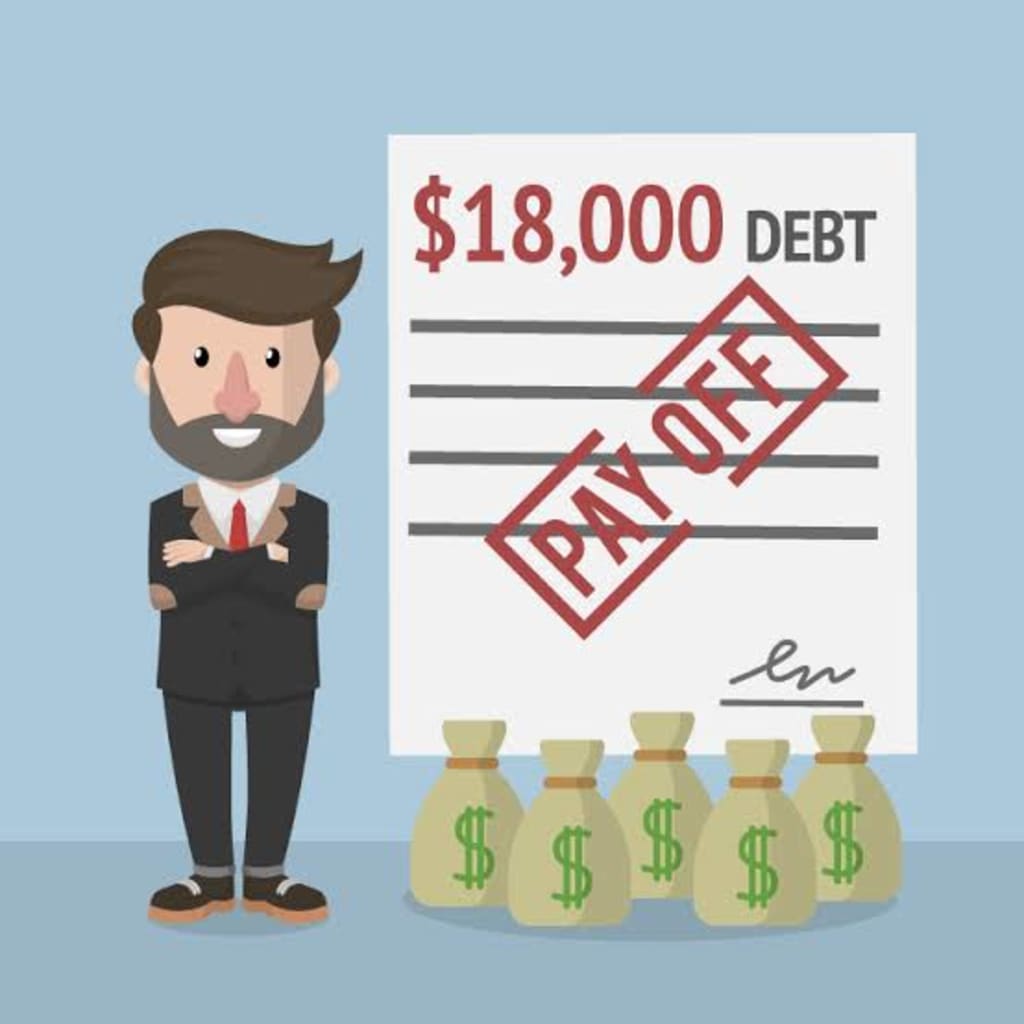
How to Pay off Debt and build wealth simultaneously.
Pay Off debt
Debt can be a significant burden on your finances and your overall quality of life. If you're carrying debt, it can be challenging to build wealth or achieve your financial goals. However, with the right strategies, you can pay off debt and build wealth at the same time. In this blog post, we'll discuss some effective debt management strategies that can help you achieve financial freedom.
Start with a budget
The first step to paying off debt and building wealth is to create a budget. A budget will help you understand your expenses, income, and how much you can allocate towards debt repayment. Make a list of all your monthly expenses and categorize them into fixed and variable expenses. Fixed expenses are those that remain the same every month, such as rent, utilities, and car payments. Variable expenses are those that fluctuate, such as groceries and entertainment. By creating a budget, you can identify areas where you can cut expenses and allocate more money towards debt repayment.
Prioritize your debts
Once you've created a budget, it's time to prioritize your debts. There are two common methods to prioritize debts: the avalanche method and the snowball method. The avalanche method involves paying off debts with the highest interest rate first, while the snowball method involves paying off debts with the smallest balance first. Both methods have their advantages, and you should choose the one that works best for you. Prioritizing your debts will help you focus your efforts on paying off high-interest debts and reduce your overall debt faster.
Increase your income
Increasing your income can be a powerful tool to pay off debt and build wealth simultaneously. You can increase your income by taking on a part-time job, freelancing, or starting a side hustle. Use the extra income to pay off debt or invest in assets that can generate passive income. Increasing your income can also help you achieve your financial goals faster and provide more financial security.
Negotiate with creditors
If you're struggling to make debt payments, consider negotiating with your creditors. Creditors may be willing to work with you to come up with a payment plan or reduce your interest rates. Contact your creditors and explain your situation. Be honest and transparent about your financial situation, and they may be more willing to work with you.
Avoid taking on new debt
Finally, it's essential to avoid taking on new debt while paying off your existing debt. This means avoiding credit card debt, car loans, and personal loans. Stick to your budget and prioritize debt repayment. Once you've paid off your existing debt, you can start building wealth by investing in assets that appreciate in value, such as stocks, real estate, and mutual funds.
Use balance transfer credit cards
If you have high-interest credit card debt, you can transfer your balance to a card with a lower interest rate. This can help you save money on interest charges and pay off your debt faster. Look for balance transfer credit cards that offer a 0% introductory APR for a specific period. However, make sure you read the fine print and understand the fees and terms associated with balance transfers.
Consider debt consolidation
Debt consolidation is another option to help you pay off debt. This involves taking out a loan or line of credit to pay off your existing debt. By consolidating your debt, you can simplify your monthly payments and potentially reduce your interest rate. However, it's essential to make sure the terms and fees associated with the consolidation loan are favorable.
Cut expenses and redirect the savings towards debt repayment
Cutting expenses is an effective way to free up more money to pay off debt. Look for ways to reduce your fixed and variable expenses. For example, you can cut back on dining out, cancel unused subscriptions, or negotiate your utility bills. Redirect the savings towards debt repayment or building your emergency fund.
Start an emergency fund
Building an emergency fund can help you avoid taking on new debt in case of unexpected expenses or emergencies. Aim to save three to six months' worth of living expenses in your emergency fund. Once you have an emergency fund, you can redirect more of your income towards debt repayment or building wealth.
Seek professional advice
If you're struggling with debt and need help developing a debt management plan, consider seeking professional advice. A financial advisor or credit counselor can provide guidance and resources to help you get out of debt and achieve your financial goals.
Use windfalls to pay off debt
If you receive a bonus, tax refund, or any other unexpected income, use it to pay off debt. Windfalls can be a great opportunity to make a significant dent in your debt and accelerate your debt repayment.
Automate your debt payments
Set up automatic payments for your debt to ensure you never miss a payment. Automating your debt payments can also help you stay on track with your debt repayment plan and avoid late fees and penalties.
Use the debt snowflake method
In addition to the debt snowball and debt avalanche methods, you can also use the debt snowflake method. This involves making small, extra payments towards your debt whenever you have spare change or extra cash. For example, if you have $10 left in your budget at the end of the week, put it towards your debt. These small payments can add up over time and help you pay off your debt faster.
Stay motivated
Paying off debt and building wealth is a long-term goal, and it's important to stay motivated along the way. Celebrate your progress, no matter how small, and remind yourself why you're working towards financial freedom. Consider joining a debt support group or finding an accountability partner to keep you motivated and on track.
Stay committed to your debt repayment plan
Finally, it's important to stay committed to your debt repayment plan. It can be tempting to deviate from your plan and spend money on things you don't need. However, staying committed to your plan and focusing on your financial goals can help you achieve financial freedom faster.
In conclusion, paying off debt and building wealth is possible with the right strategies and mindset. Use a combination of these debt management strategies to develop a plan that works best for you. Stay motivated, committed, and focused on your financial goals, and you'll be on your way to financial freedom in no time





Comments
There are no comments for this story
Be the first to respond and start the conversation.